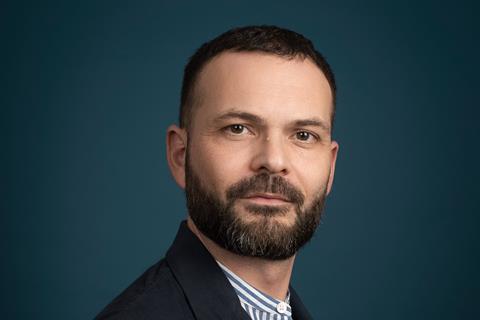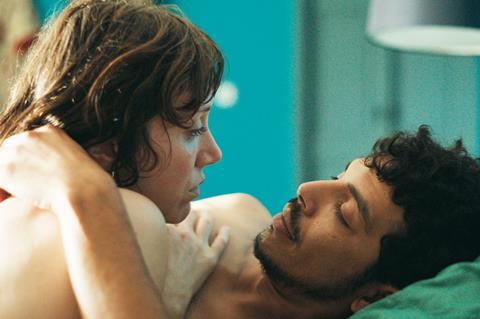
Homegrown films and talent are at the heart of the Marrakech International Film Festival (MIFF) and the industry-focused Atlas Programmes, running from November 28 until December 6 in Morocco.
Rémi Bonhomme, who launched the festival’s talent development programme Atlas Workshops in 2018, became its artistic director in 2020.
The festival attracts the world’s top filmmaking talents: Oscar-winning Korean filmmaker Bong Joon-ho will preside over the competition jury and Palme d’Or-winning Romanian director Cristian Mungiu is the patron of the Atlas Workshops, mentoring the selected filmmakers.
Bonhomme talks to Screen about MIFF’s role as a bridge between well-known filmmakers and emerging talent, how the festival is a stepping stone on the way to the Oscars and the role MIFF plays in amplifying regional films to global audiences.
What makes MIFF stand out on the international festival circuit?
MIFF is a crossroads between Europe, Africa and the Arab world, which makes it both very relevant and important in the region and internationally.
The festival is a platform for discovery. I wanted to position the festival as a bridge between established names in world cinema, emerging talent from the region and around the world and the Academy Awards.
We feature tributes, in conversations with leading filmmakers and actors and some of this year’s most anticipated films, including major US [awards-contenders], including Guillermo del Toro’s Frankenstein and Chloé Zhao’s Hamnet. We also have 14 films that are representing their countries at the Oscars, including Annemarie Jacir’s Palestine 36 from Palestine and Maryam Touzani’s Calle Malaga from Morocco. [Academy of Motion Picture Arts and Sciences CEO] Bill Kramer will be in conversation, and we will be welcoming several Academy voting members. MIFF’s position at this strategic time for the Oscar race is one of its strong points.
It’s a busy time for festivals. How closely do you work with other events in the region?
If we have guests going from one festival to the other, we speak with each other to share costs. The real question is about world premieres or regional premieres and what the festival offers a film. Festivals should serve the films and not the other way around.
What new initiatives are you launching this year?
All our industry initiatives now come under the new banner called the Atlas Programmes. The Atlas Workshops are at its heart and have become a key event for the Arab and African industry in giving visibility to, and shaping the future of Arab and African cinema. I wanted to build on this momentum.
The Atlas Distribution Awards, which promote the theatrical release of Arab and African films, are two years old and have supported more than 60 releases in more than 12 countries in the Middle East and North Africa (MENA) and Arab region. This year, we are launching the Atlas Distribution Meetings, which will bring together 60 key industry people representing distribution and sales [including UK distributors Curzon and New Wave Films and UK sales company Independent Entertainment]. These initiatives also provide the chance to host more world premieres at the festival.
Can you name some highlights for international attendees?

World premieres include [competition title] Behind The Palm Trees from Meryem Benm’ Barek, who had great success with her debut, Sofia, at the 2018 Cannes Film Festival. Also in competition is Australian fashion photographer James J Robinson’s debut First Light, which is an international premiere.
In the galas, there’s the gripping thriller Sophia by [Tunisian filmmaker and actor] Dhafer L’Abidine, shot between Tunisia and the UK, and El Sett by [Egyptian director] Marwan Hamed, starring Mona Zaki, which was supported by the Atlas Workshops.
What role can Marrakech play to bring people together during volatile political times?
The competition is comprised of first and second films which reflect the preoccupations and issues that are important for the younger generation. The competition is a true laboratory for emerging cinema where you can see trends in terms of issues and aesthetics.
This year’s selection reflects the trend of the last two or three years, when the world has become crazy. For years, most young filmmakers were making coming-of-age stories. Now, they are making films that are very politically aware, that explore global injustice through intimate or semi-autobiographical or historical narratives, stories that live in the intersection between personal memories and collective history. It is cinema that questions in a very subtle way.
Having a jury of high-profile international filmmakers and actors is very Important. Last year Andrew Garfield was on the jury and the top award went to Happy Holidays by Palestine’s Scandar Copti. In [later] interviews, Garfield mentioned the film and the other regional films he saw in Marrakech. The festival opens a conversation through cinema.

























No comments yet